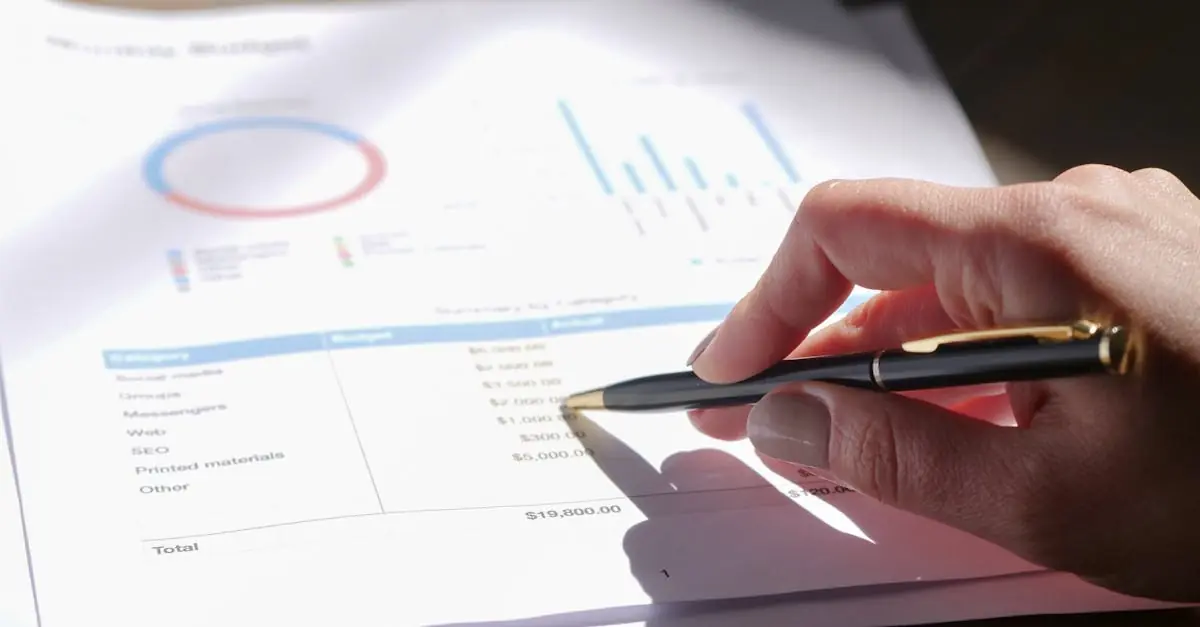Table of Contents
ToggleEvery year, like clockwork, those pesky annual expenses creep up on us, ready to pounce when we least expect it. From that subscription you forgot you signed up for to the inevitable property tax bill that feels more like a surprise party you never wanted, managing these costs can feel like herding cats. But fear not! Understanding these expenses is key to keeping your finances in check and your sanity intact.
Understanding Annual Expenses
Annual expenses refer to the costs incurred over a year, encompassing both recurring and one-time obligations. These expenses can catch individuals off guard, affecting budgeting and financial planning.
Definition of Annual Expenses
Annual expenses include any predictable financial obligations within a year. Common examples are property taxes, insurance premiums, and utility bills. Recurring fees, like subscription services, also fall into this category. Keeping track of these expenses ensures better visibility into overall financial health.
Importance of Tracking Annual Expenses
Tracking annual expenses aids in effective budgeting and financial stability. Awareness of these costs allows for proactive financial planning, reducing stress during unexpected obligations. Identifying trends in spending helps individuals allocate resources efficiently. Additionally, understanding annual expenses can prevent overspending, ensuring financial goals remain attainable. Regular monitoring fosters accountability, encouraging timely adjustments to one’s budget and spending habits.
Categories of Annual Expenses
Understanding the categories of annual expenses helps individuals manage their finances effectively. These categories include fixed expenses, variable expenses, and occasional expenses.
Fixed Expenses
Fixed expenses remain constant throughout the year. Examples include rent or mortgage payments, insurance premiums, and property taxes. These costs require consistent cash flow for timely payment. Monthly bills often fall into this category, making budgeting easier. Individuals can forecast fixed expenses accurately, ensuring they allocate sufficient funds.
Variable Expenses
Variable expenses fluctuate based on usage and personal habits. Groceries, utility bills, and entertainment costs vary from month to month. Individuals might spend more one month and less the next, depending on lifestyle choices. Monitoring these expenses becomes essential for accurate budgeting. Adjustments can be made to accommodate unexpected increases or decreases in spending.
Occasional Expenses
Occasional expenses arise infrequently and can catch individuals off guard. Examples include car repairs, medical bills, and holiday gifts. These costs balance uncertainty with predictability when planned for in advance. Setting aside funds specifically for such expenses helps manage financial impact. Individuals can thus mitigate stress during unexpected financial obligations.
How to Calculate Annual Expenses
Calculating annual expenses involves systematic steps. Understanding financial records and tracking spending patterns is crucial for effective budgeting.
Gathering Financial Records
Start with relevant documents such as bank statements, pay stubs, and bills. Collect records covering the entire year for a comprehensive overview. Examine both fixed and variable expenses, ensuring all recurring costs are included. Check credit card statements for incidental expenses that might otherwise be overlooked. Include receipts for occasional expenses like car maintenance or gifts. An organized approach simplifies the gathering process and creates a clearer picture of total expenses.
Creating an Expense Tracker
Setting up an expense tracker is essential for ongoing management. Choose a method that fits personal preference, such as spreadsheets or budgeting apps. Input all gathered financial records, categorizing expenses into fixed, variable, and occasional types. Offer clear labels for each category to enhance usability. Regularly update the tracker to reflect real-time spending and identify trends. This ongoing process helps in adjusting budgets and planning for future expenses more effectively.
Tips for Managing Annual Expenses
Managing annual expenses requires proactive strategies. Effective budgeting enables individuals to allocate resources wisely and predict financial needs.
Budgeting Strategies
Creating a detailed budget often begins with identifying all income sources. Allocating funds to fixed expenses first simplifies the process. Next, individuals should estimate variable costs based on past spending habits. Reviewing previous financial records assists in this evaluation. Utilizing budgeting apps facilitates tracking, providing real-time updates on expenditures. Regularly revisiting the budget promotes adjustments based on lifestyle changes or unexpected costs. This structured approach supports smarter financial decisions throughout the year.
Reducing Unnecessary Costs
Identifying unnecessary costs becomes essential for financial health. Evaluating subscriptions reveals services that may no longer be used, allowing for cancellations. Regularly comparing utility providers can lead to savings. Dining out less frequently also significantly reduces monthly expenses. Taking advantage of sales for occasional expenses, like gifts or clothing, can lower overall costs. Building a habit of questioning purchases fosters thoughtful spending. Prioritizing needs over wants often leads to better financial stability.
Managing annual expenses is crucial for achieving financial stability. By understanding and tracking these costs individuals can avoid unpleasant surprises and make informed decisions. Organizing expenses into fixed, variable, and occasional categories simplifies budgeting and helps in planning for the future.
Implementing proactive strategies such as utilizing budgeting apps and regularly reviewing financial habits can significantly reduce stress. This approach not only aids in maintaining control over finances but also fosters a mindset focused on long-term goals. Adopting these practices ensures that individuals are better prepared for both expected and unexpected expenses, paving the way for a more secure financial future.




